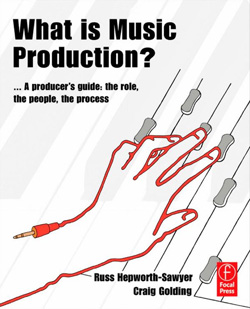
Nurturing
Work alongside the artist, giving the time, space, and safe environment in which to try out their ideas.
At first glance these elements might not seem like a big task, but nurturing someone’s creativity is a difficult task to undertake as it can involve all the other mindsets and approaches in one.
This approach requires the skill of being able to carefully balance the encouraging comments and observations with the discouraging, knowing when these are appropriate and when they are not. This approach will also require you to have developed a sense of trust between yourself and the artist or group.
They need to feel able to allow you to have creative input whether it be musical or otherwise. They need to see this help as a guiding hand and not a manipulative fist!
A nurturing mindset and role could be considered as more relevant when working with younger or less experienced artists. However, all artists, experienced or not, can feel insecure at times and may struggle with their creative flow in the studio. It is at this point that they may look to you for guidance or advice and the objective viewpoint that is a fundamental part of your reason for being there.
Psychologist
This is possibly more an approach than a mindset and psychologist is by no means the most accurate of titles but more of a best-fit description.
By psychologist we mean an approach that is more intentionally sensitive or switched on to the dynamics of a session or the personalities that are present in order to achieve a successful result. In many ways it is difficult to define this approach and single it out as a separate way of working, as it is used to a certain extent within all the other mindsets.
However, this mindset or approach is worth considering when working in a potentially difficult situation or with an artist that is potentially more emotionally volatile. The ability to be perceptive and read and judge people’s moods and body language can be a great asset for the producer, who can then react in the appropriate way in order to steer the session toward a positive outcome.
Essentially what is being proposed here is that you adopt a more sensitive approach, allowing yourself to be open to these subtleties and consider how to react in a given situation.
In doing so you may be better prepared to offer solutions to the artist and therefore create a better atmosphere in which creativity can thrive.
This is the second segment in our series by Golding and Hepworth-Sawyer on audio production. Additional segments are available here.
To purchase What is Music Production? click on over to the Focal Press website.
Russ Hepworth-Sawyer is a sound engineer and producer with many years’ experience of all things audio and is a member of the Association of Professional Recording Services and the Audio Engineering Society; a Fellow of the Institute For Learning (U.K.); and a Director of the Music Producer’s Guild. Craig Golding is currently Course Leader for the Music Production degree program at Leeds College of Music in the U.K. and also has an active freelance career in sound engineering and production with over a decade’s experience working in the industry.
